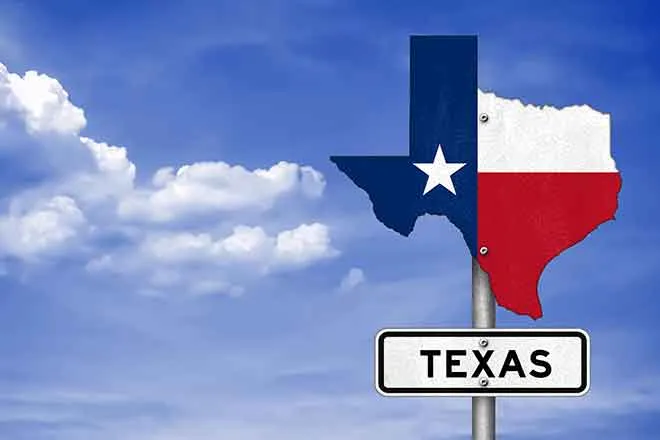
Daily Audio Newscast - July 14, 2025
© AlexLMX - iStock-823000260
Six minutes of news from around the nation.
Two dead at Lexington, KY church after suspect shot a state trooper - suspect killed; SD pleads with Trump administration to release education funds; Rural CO electric co-op goes independent; New CA documentary examines harms of mining critical minerals; ID projects receive $76,000 in grants to make communities age-friendly.
TRANSCRIPT
The Public News Service Daily Newscast for July the 14th, 2025.
I'm Mike Clifford.
Two women were killed at a shooting Sunday at the Richmond Road Baptist Church in Lexington, Kentucky, after a man shot a state trooper near the city's airport.
Two men were also injured.
They're from CNN.
They report the shooting near the Bluegrass Airport unfolded on Sunday morning after a trooper pulled over a vehicle on terminal drive after receiving plate reader alert.
The trooper was shot before the suspect fled the scene and carjacked a vehicle ending up at Richmond Road Baptist Church about 15 miles away.
CNN notes of preliminary information suggests the suspect may have had a connection to people at the church.
Three responding officers shot the suspect who was declared dead at the scene.
And like many school districts across the country, South Dakota administrators aren't sure what their funding will look like for the upcoming school year.
That's due to the Trump administration's decision to withhold grants for a review.
At the start of July, the US Department of Education informed districts it was freezing six billion dollars in grants that cover, among other things, teacher training and English language instruction.
Heath Larson of the Associated School Boards of South Dakota questions the timing.
It certainly puts you know our administrators and school boards in a difficult position when it comes to the planning and preparation and knowing you know what will be or what won't be you available.
Education advocates say the funding freeze places greater strain on low-income districts and schools with a larger share of migrant students.
The Trump administration says it wants to ensure funds aren't being used to carry out a quote radical left-wing agenda unquote.
But even Republican lawmakers are urging the White House to release all the money.
I'm Mike Moen.
And La Plata Electric Association, a rural electric cooperative bringing power to much of southwest Colorado, is taking a big step toward energy independence by ending its contract with Tri-State Generation and Transmission, a much larger wholesale energy supplier.
La Plata CEO Chris Hansen says leaving Tri-State will give the co-op more local control and flexibility with sourcing energy and make it easier to invest in local economies where members operate.
He says it should also help keep costs low for rate payers.
We've got lower wholesale contracts on the day we leave.
April 1st, 2026, our wholesale power costs will come down.
If we have lower wholesale rates, it puts less pressure on our retail rates.
Hanson notes the total bill for La Plata members won't necessarily go down because of other increasing costs, such as infrastructure.
Under the cooperative model, all customers are also co-op owners.
Despite the member-elected board having control over decisions, like leaving Tri-State, some La Plata members critical of the move have called for a vote.
This story was produced with original reporting from Ilana Newman for the Daily Yonder.
Eric Galatas reporting.
This is public news service.
A new documentary looks at ways to reduce the human and environmental harms stemming from the mining of critical minerals.
Without minerals like cobalt, nickel, and lithium, there would be no cell phones, electric vehicles, solar panels, or long storage batteries.
But Mira Rubio, who directed the documentary for the Trade Justice Education Fund, says people in mining communities often do dangerous work for poverty level wages.
And cobalt mines in the Democratic Republic of Congo, people, including children, who are making cents on the dollar, digging minerals that are ending up in $80,000 Teslas or iPhones, they're risking their health, and yet they may never have access to clean air or stable electricity.
She says mining has also led to widespread deforestation and toxic pollution.
I'm Suzanne Potter.
And five projects to support age-friendly communities have been selected to receive funding in Idaho.
AARP's ninth annual Community Challenge Grant Program is investing $76,000 in Idaho projects that must be developed quickly.
Participants have until December 15th to complete them.
Randy Simon with AARP Idaho says one of the projects is from Wyatt Marshall, a high school senior in a small town in Southeast Idaho.
This turns out to be an intergenerational project where a high school senior wants to build a pickleball court in Income, Idaho.
To be able to fund something like that is just great.
The other projects are a covered pavilion at a park in East Hope, a gazebo at a park in Melba, widening sidewalks in downtown Emmett, and audio and visual equipment upgrades for the Idaho Hispanic Community Center's building in Nampa.
I'm Eric Tegethoff reporting.
Finally, a Wisconsin nonprofit serving people with disabilities is waiting to hear if federal changes to Medicaid will impact their clients and caregivers, which overwhelmingly rely on the program for their health care needs.
The nonprofit CP serves about 200 people in Northeast Wisconsin that have complex physical or developmental disabilities, nearly all of whom use Medicaid to pay for their services.
Julie Tesloff is the director of Adult Day Services and says about 75 percent of clients are in wheelchairs and unable to reposition themselves. explains the exercise program CP offers is crucial to prevent patients from developing pressure sores.
A sore on the butt cost a lot of money.
It's like anywhere from 30 to $150,000.
And once one of our clients has a pressure sore, it stays with them for a long time.
So they might heal up, but they're going to be susceptible to another sore in that same area without active movement and repositioning.
She says their program focuses on functional skills training using adaptable equipment funded through grants and community support.
Starting December of 2026, most Medicaid recipients will be required to complete at least 80 hours per month of work, schooling, or community service to retain coverage.
I'm Judah Ruiz Branch, reporting.
This is Mike Clifford.
Thank you for starting your week with Public News Service.
Member and listener supported.
Find our trust indicators at publicnewsservice.org

















